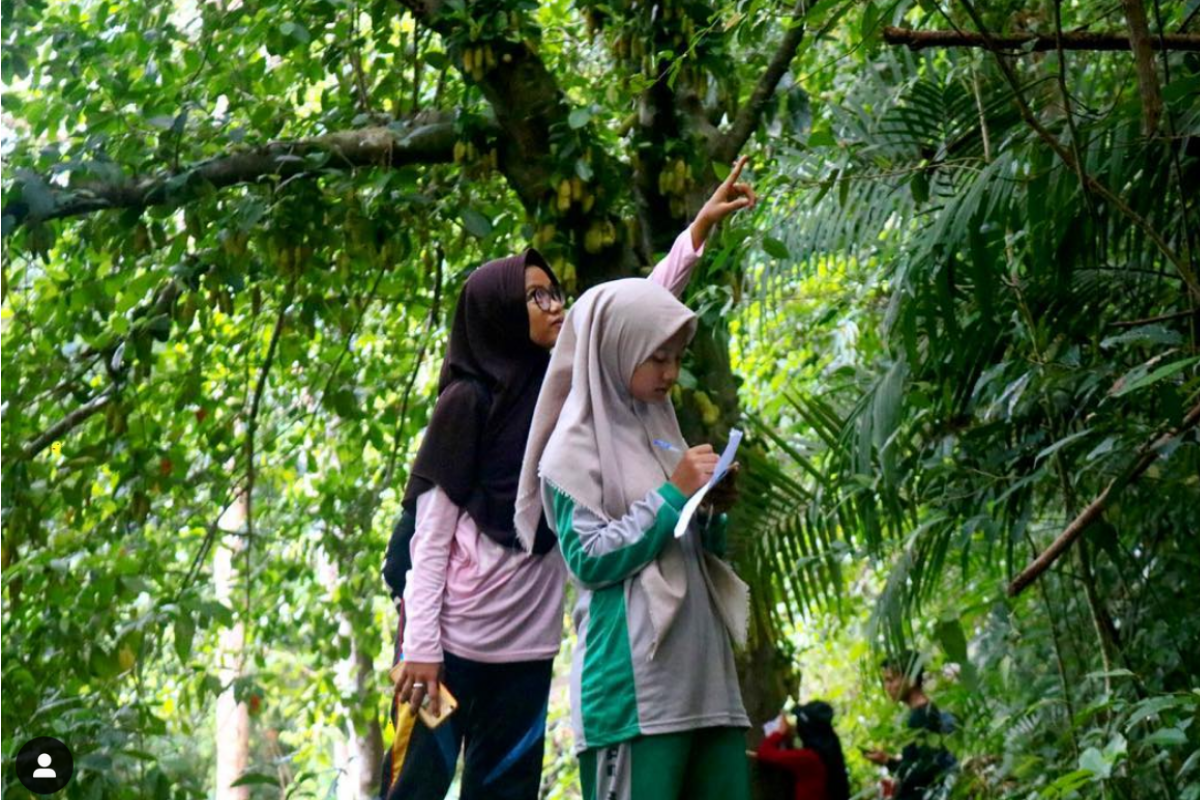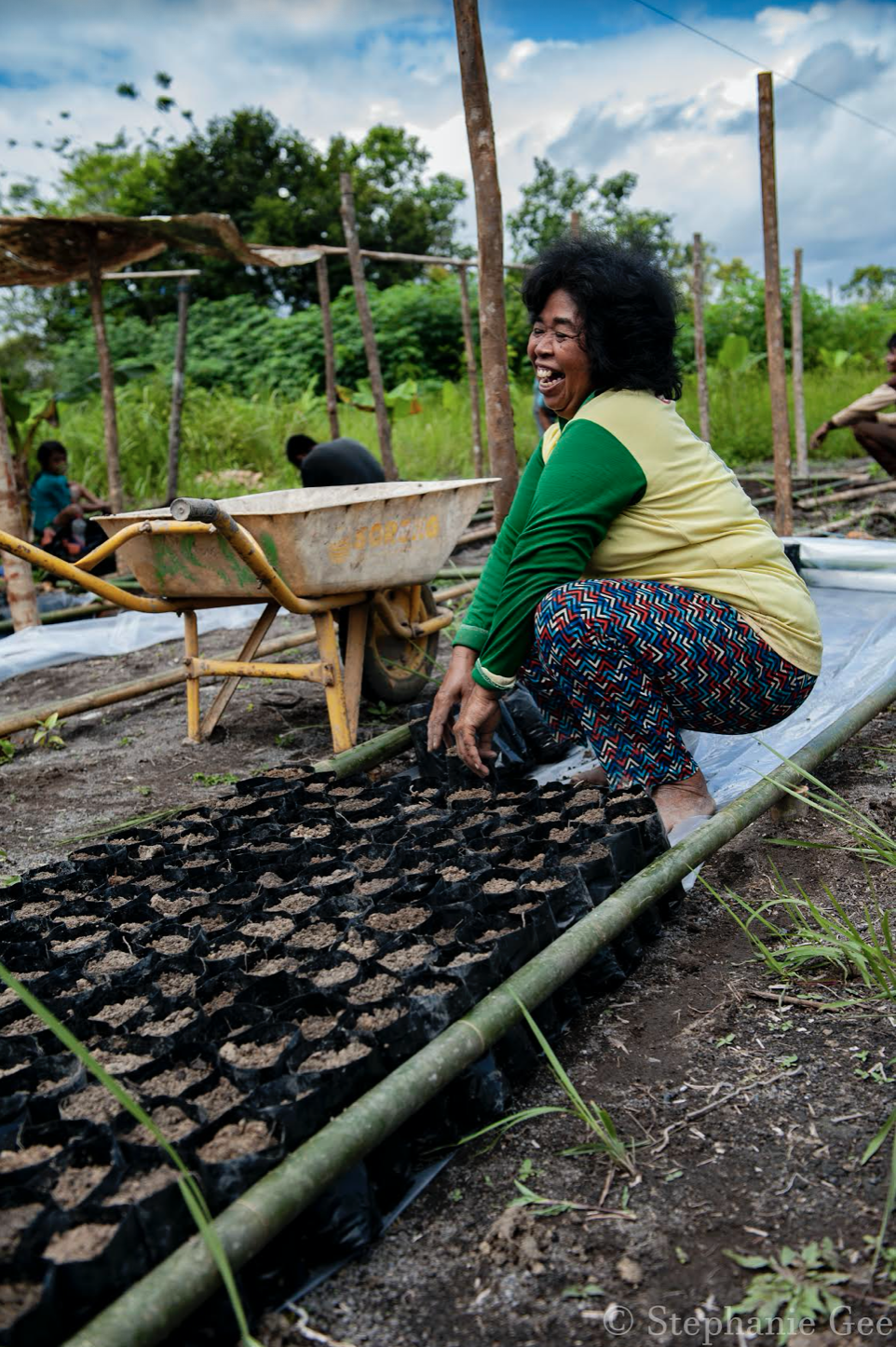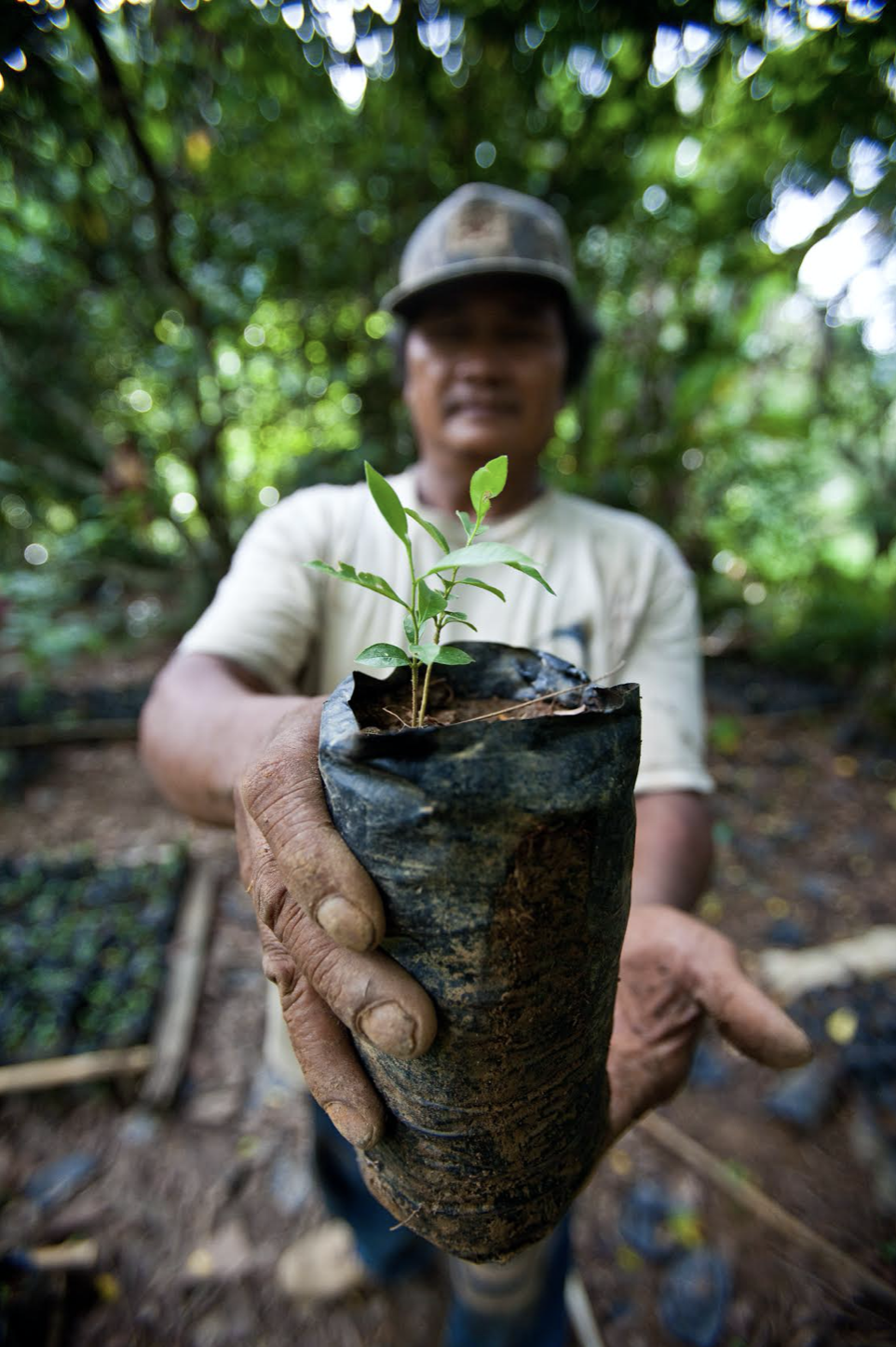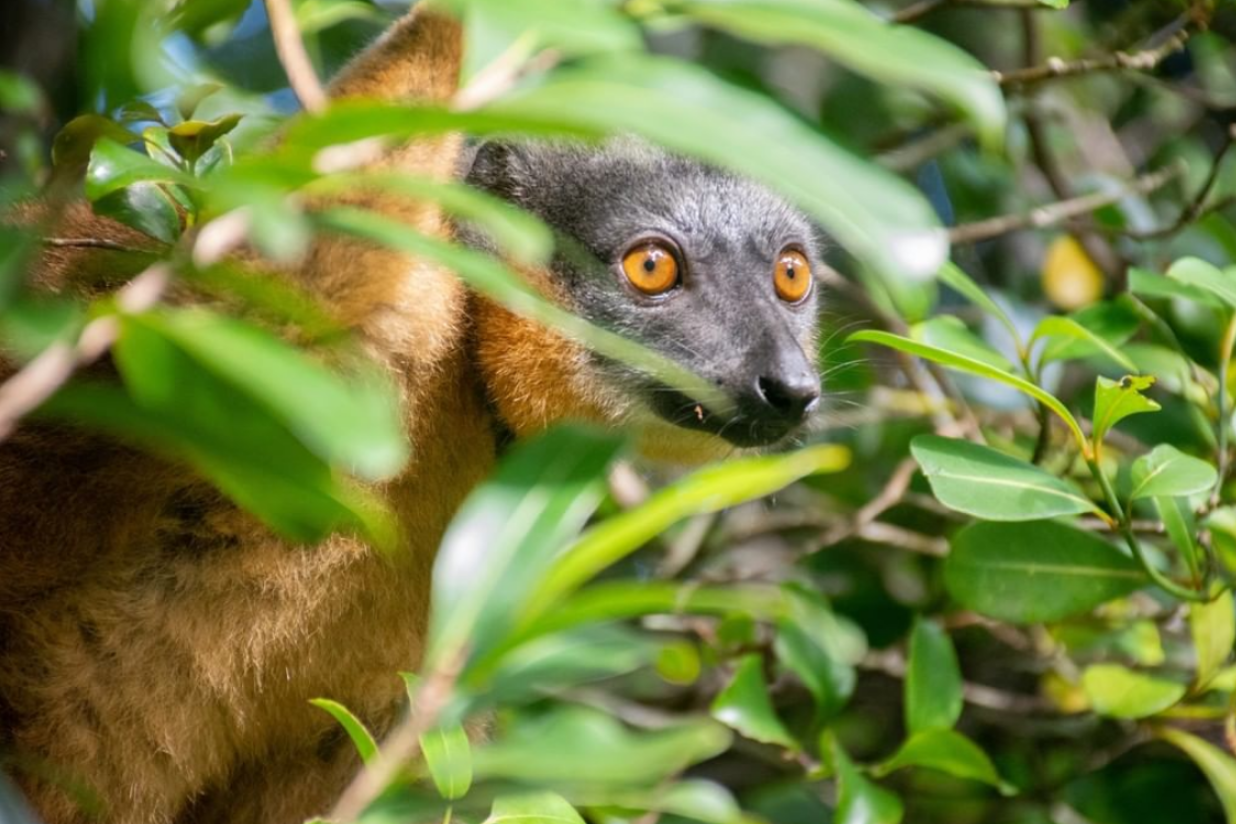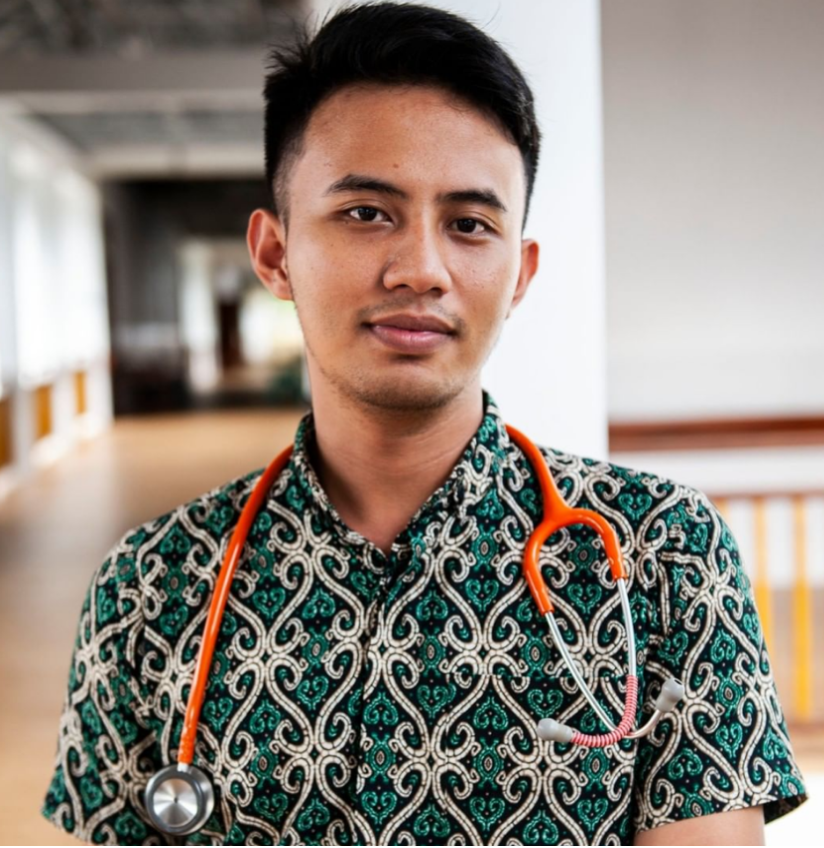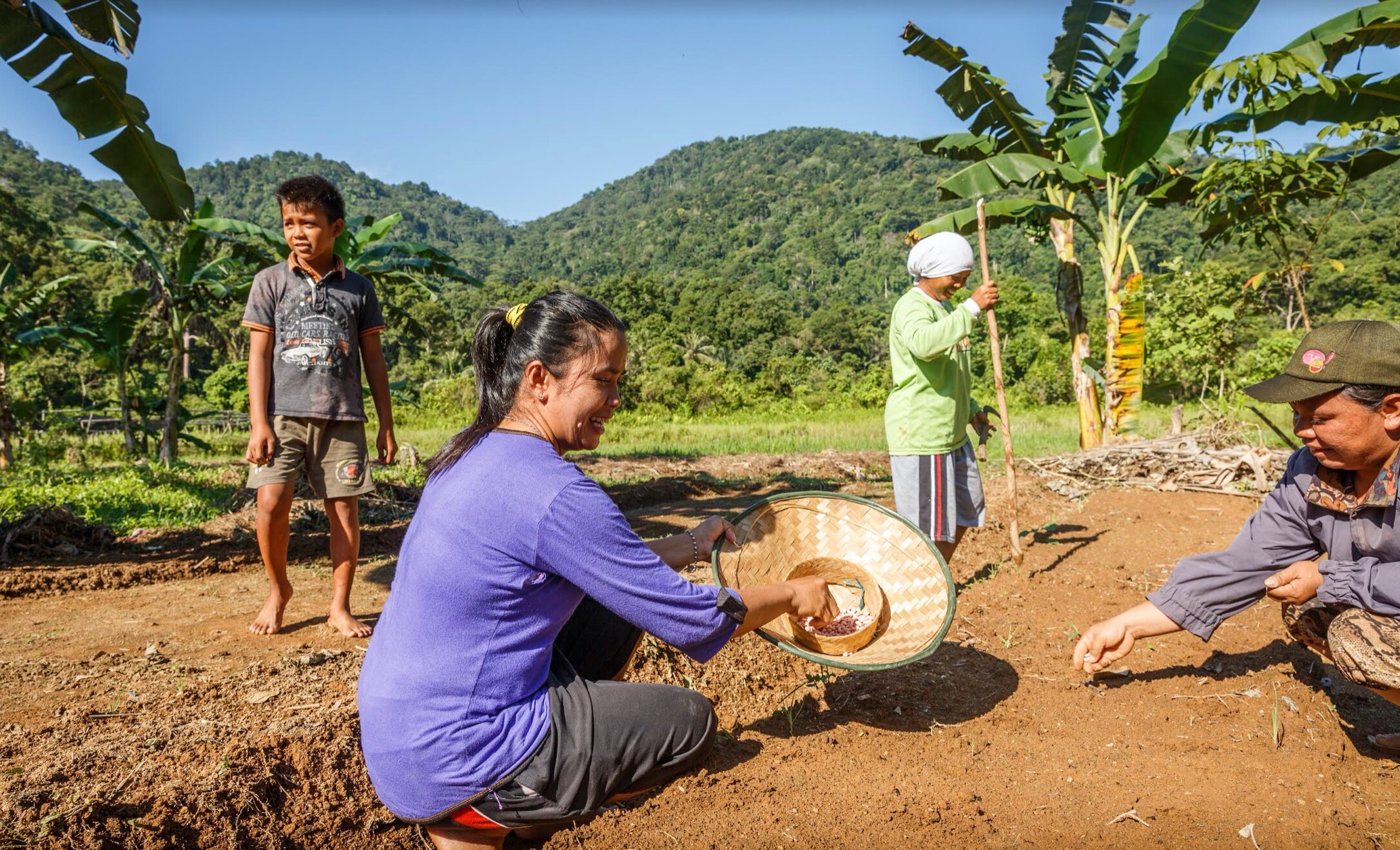REFORESTATION
When human and environmental health become one
We are excited to announce our partnership with Health In Harmony and Alam Sehat Lestari (ASRI) on innovative reforestation. Founded by Dr. Kinari Webb, Health In Harmony and ASRI have been working together with rainforest communities for 15 years to reduce greenhouse gases and protect rainforests carbon storage. The approach is unique. Health In Harmony and ASRI employ the Radical Listening model to understand and formulate systems-thinking solutions to effectively change drivers of deforestation. The focus is equally on improving human health and wellbeing. This model has been featured in Newsweek, The New York Times, and Forbes. In today’s pandemic era, working at the intersection of human health and environmental health is imperative.
In the late 1990s, young Kinari Webb was deep in the Bornean rainforest, studying orangutans. But as she was falling in love with the forest, the animals, and the people who lived there, she could not ignore the ever-accelerating deforestation that was taking place around her. “At first, I just hated these guys. How could they do this? But as I got to know them, they told me that they were often logging to pay for healthcare,” Webb said. Years later, after having earned a medical degree from Yale University and having experienced first-hand how international aid agencies ignore community needs, Kinari decided to take matters into her own hands. She established her own nonprofit organization and placed the needs of the community and the forest at its center. Communities told Kinari that affordable healthcare will help them stop logging.
Today, it is clear that that was it. Health In Harmony and ASRI have been running a medical center and programs to provide high-quality healthcare and training in sustainable agriculture. The medical center offers the Green Credit system, where patients from villages that reduce illegal logging receive discounts up to 70% on healthcare services. Patients can also pay with seedlings, ensuring care is always accessible. The livelihood and educational programs include Chainsaw Buyback, Goats for Widows, Community Education, and Forest Guardians. In the first ten years, illegal logging decreased by 90%, infant mortality dropped by 67%, 194,000 seedlings have been planted, and 50,000 acres of forest has regenerated. Alongside the flourishment in human health, the rainforest has experienced a regrowth of more than 52,000 acres. The communities, an indispensable leader in these outstanding achievements, want to have an even greater impact. They want greater reforestation and an expansion of the training programs to reach the out-of-reach loggers. This is where we, the Straubel Foundation, come in. JB and Boryana spoke to the HIH team and decided to start with a mini-collaboration, a pilot.
“We are just planting a seed here. We like growing things that help both people and the environment. Real change requires system-thinking. Effective environmentally sustainable solutions incentivize the root causes of human behavior. At the Straubel Foundation we are interested in out-of-the-box solutions that have the potential of driving long-lasting change.” -- Boryana Straubel said.
The Collaboration
The Straubel Foundation investment in Health In Harmony and ASRI efforts will focus on two projects.
The first project expands the offerings of the traditional reforestation programs. These offerings include preserving an array of exclusively native plant species, improving plant testing and monitoring capacities, bolstering the Green Credit system, enhancing the effectiveness of planting methods, and expanding all offerings to more loggers in the region. So far, ASRI and Health In Harmony have planted more than 175 hectares under the traditional reforestation programs. We, the Straubel Foundation, will join the efforts by planting an additional 10,250 rainforest trees.
The second collaborative project focuses on the Garden to Forest program. This initiative facilitates transitions for farmers from slash-and-burn practices into sustainable agroforestry. While the region has witnessed incredible strides towards rainforest preservation, the main cause of deforestation remains to be individual practices by farmers. ASRI collaborated with the Gunung Palung National Park and Bukit Baka Bukit Raya National Park to create and implement programs that support human health, economic development, and environmental conservation. More importantly, these programs were the direct response to requests made by the communities after activating the Radical Listening model and engaging with them in the solution making exercise. These collaborations will restore forest canopy cover while improving farmer livelihoods. So far, this project has reforested 117 hectares of gardens within the national parks, and together, we will plant an additional 3,000 native fruit trees.
The CO2
A mature tree can absorb almost 48 pounds of carbon dioxide per year. Thanks to Health In Harmony programs, more than 71,532,676 pounds have been protected from being released into the atmosphere in the past three years alone. With our collaboration, the additional 13,250 trees that will be planted will capture and store 636,000 pounds of CO2/year. This is the equivalent of 62.3 passenger vehicles driven for one year, or 36,791,101 smartphones charged. This is the equivalent of 12,275 waste in trash bags recycled instead of landfilled, or 48.8 homes’ electricity use for one year.
As Health In Harmony has demonstrated, a system-approach to forest regeneration is an effective and sustainable solution to the intractable challenge of climate change. In addition to alleviating environmental health, reforestation generates an antivirus ecosystem. Human communities learn how to be healthy and generate environmentally-conscious incomes.
We recognize that environmental and human health are two sides of the same coin. One cannot flourish without the well-being of the other. We, at the Straubel Foundation, are eager to support both.




